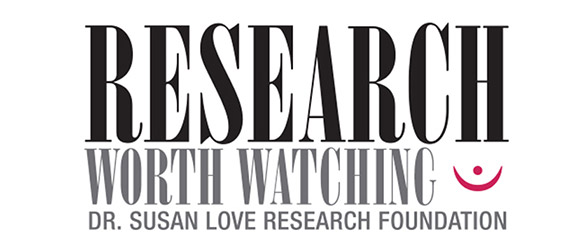
From June 3 to June 7, I was one of more than 35,000 oncology professionals, advocates, and survivors from around the world mingling at the 2016 American Society of Clinical Oncology (ASCO) Annual Meeting in Chicago.
Each year, a lot of new research is unveiled at ASCO. This year’s conference included more than 5,200 abstracts, all of which are publicly available Hundreds of these are related to breast cancer. It’s a lot to wade through. For now, I want to tell you about research presented at two breast cancer plenary sessions (presentations/discussions highlighting key research) that is relevant for women being treated now.
The first plenary focused on a question we’ve been discussing for more than a decade: How long should postmenopausal women stay on an aromatase inhibitor (AI)?
When AIs were initially introduced as adjuvant therapy, it was with the recommendation that they be taken for five years. That was because they were tested in randomized trials against tamoxifen, which had initially been studied and shown to be most effective when taken for five years. But was that true for the AIs? No one really knew. And some patients began staying on them longer. Then, in June 2014, responding to new findings, ASCO updated its hormone treatment guidelines to recommend 10 years of tamoxifen instead of five – which raised new questions about how long to stay on an AI.
At ASCO, we heard from Paul E. Goss, MD, PhD, of Massachusetts General Hospital Cancer Center and Harvard Medical School, who presented results from the Canadian Cancer Trials Group’s MA.17R trial, which looked at the benefit of extending treatment with an AI beyond five years. The trial included 1,918 postmenopausal women with early-stage breast cancer who had already been on hormone therapy for five years. They were randomly assigned to take the AI letrozole (Femara) or a placebo for five years. About 20 percent had only been on an AI. The others had taken tamoxifen for part of the time and an AI for part of the time.
Goss reported that letrozole improved disease-free survival: The women on the AI were less likely to have their cancer recur – as distant metastases, in the same breast, or in the opposite breast – than those on the placebo. Specifically, the five-year disease-free survival rate was 95 percent in the letrozole group compared to 91 percent in the placebo group. A small but real difference. However – and this is important – the overall survival rate was no different between the two groups: 93 percent in the letrozole group and 94 percent in the placebo group. (Disease-free survival refers to survival with no signs or symptoms of cancer, whereas overall survival means being alive with or without cancer present.)
Women in both groups reported the same quality of life. Remember, however, any woman who agrees to be in a study of longer use of an AI is probably less likely to have AI-related side effects to begin with. In terms of bone problems – a known side effect of AIs – 14 percent of the women in the letrozole group had a fracture compared to 9 percent in the placebo group. In addition, 11 percent of the women in the letrozole group were diagnosed with osteoporosis compared to 6 percent in the placebo group.
At the plenary, panelist Deborah Schrag, MD, MPH, of the Dana-Farber Cancer Institute in Boston, said that when viewed through ASCO’s new Value Framework, which assesses the value of a cancer treatment based on clinical benefit, side effects, and improvements in symptoms or quality of life in the context of cost, an additional five years of an AI had low value. She also suggested that in terms of saving lives, it made more sense to focus on getting women to stay on an AI for the full five years. This is an important point because studies have found that only one in four women take their hormone therapy for the full five years, most likely because of the side effects.
The second plenary focused on using the new CDK4 and CDK6 targeted therapies to treat metastatic breast cancer. These drugs target enzymes called kinases, which play a critical role in cell growth. Concerning one such drug, Maura N. Dickler, MD, of Memorial Sloan Kettering Cancer Center in New York City, provided an update on MONARCH 1, a phase II trial looking at a CDK4 and CDK6 inhibitor called abemaciclib in 132 patients with HR+, HER2- breast cancer whose cancer had progressed on or after hormone therapy and chemotherapy. Overall, 22.7 percent of patients had stable disease lasting for six months or more, and only 7.6 percent of patients had to stop taking the drug because of side effects. This is a promising result. Currently, 12 clinical trials are underway or will soon begin that are looking at abemaciclib in breast cancer.
It’s worth noting that abemaciclib entered trials after having received “breakthrough” designation from the Food & Drug Administration (FDA). It looks as though this was a wise move by the FDA. But it’s also important to be sure patients and doctors are clear about what “breakthrough” means. As this recent article explains, studies have found that many doctors and patients think a “breakthrough” designation from the FDA means there is evidence that shows the drug is more effective than current treatment. But that’s not the case. The FDA gives “breakthrough” status to new types of drugs that early studies suggest might be better, so it makes sense to learn more about the drug as quickly as possible.
Lastly, I’d like to note how great it was to hear Vice President Biden speak at ASCO about the National Cancer Moonshot Initiative Biden emphasized the need to challenge the current model of funding for cancer research, where there is little incentive for researchers to share data or try something radically new. The Foundation has repeatedly stressed the need to fund innovative research and to bring people from many different disciplines together to share and analyze data in ways that will break new ground. In fact, that’s what we’ve done for the past 15 years at the Foundation’s biennial International Symposium on the Breast! So, in short, we think Biden is on the right track. And since I’ve been invited to attend the National Cancer Moonshot Summit later this month in Washington, D.C., I think I need to plan on using that opportunity to get Biden to enroll in the Love Research Army!
